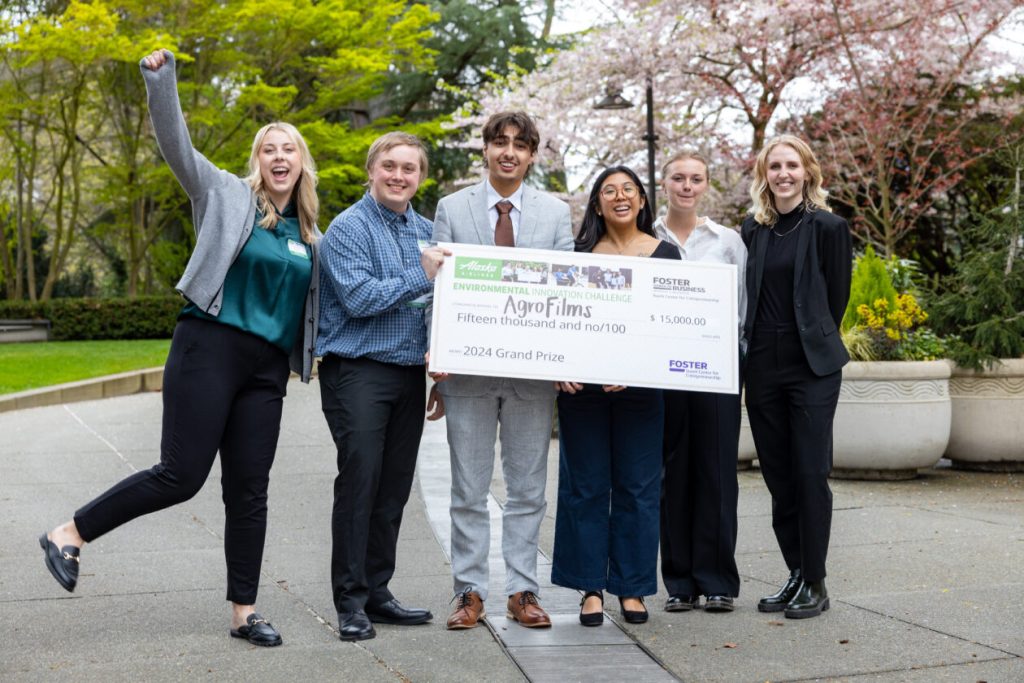University students from the Pacific Northwest recently competed in the Alaska Airlines Environmental Innovation Challenge, pitching ideas for potential startups aimed at protecting the planet. The event, hosted by the University of Washington’s Buerk Center for Entrepreneurship, featured 22 teams who incorporated various technologies such as software, drones, chemistry, engineering biology, and more into their innovations. The top prize of $15,000 was awarded to AgroFilms, a team that developed a biodegradable film made from hemp waste to prevent irrigation water from evaporating in agricultural fields.
Eric Carlson, a judge at the event, emphasized the importance of addressing environmental challenges and praised the hard work and commitment of the students. Makoto Hamamoto Eyre, a past participant who is now the CEO of a carbon capture startup, encouraged the students to be resilient in the face of challenges and to remain open to pivoting their ideas. He emphasized that persistence and a willingness to adapt are key to success in the entrepreneurial world.
Other winning teams at the challenge included C-1 Bio, which took home the $10,000 Second Place Prize and the $2,500 Climate Impact Prize for their work on capturing carbon dioxide using aquatic bacteria. Minimycelium won the $5,000 Alaska Airlines Third Place Prize for their innovative use of mushrooms to decompose plastic and produce edible mushrooms. SuperSurya received the $5,000 UW Clean Energy Institute Clean Energy Prize for their technology aimed at boosting energy efficiency in residential solar power.
SEAPEN, another winning team, was awarded the $2,500 Leo Cup Innovation in Oceanography Prize for their platform that uses artificial intelligence to analyze marine images and videos capturing wildlife, pollution, and vegetation. The event’s main sponsors were Alaska Airlines, Microsoft, and the UW’s Clean Energy Institute, with participating students coming from various universities. The competition provided an opportunity for students to showcase their innovative ideas and receive recognition for their efforts in addressing environmental challenges through entrepreneurship.
The success of these teams highlights the potential for innovation and creativity in addressing urgent environmental issues through the development of new technologies and solutions. The competition served as a platform for students to demonstrate their passion for sustainability and environmental conservation while also fostering collaboration and networking opportunities within the entrepreneurial ecosystem. With continued support and recognition for these endeavors, there is immense potential for the growth and impact of environmentally-focused startups in the Pacific Northwest and beyond.


